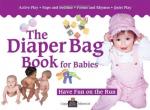|
This section contains 3,272 words (approx. 11 pages at 300 words per page) |

|
According to classic developmental theory, infants operate in the present, without thoughts of the past or anticipations of the future. Adults cannot remember events from infancy, a fact sometimes cited to corroborate the notion that memories are not formed during the preverbal period. However, experimental studies conducted in the late twentieth century demonstrate that young infants have more robust memories than heretofore believed. Indeed, modern theorists focus on the different types of memory infants might have. Infants seem to remember particular things under certain conditions and not others; they may also have privileged memory for biologically relevant signals such as faces and speech sounds.
Techniques for Investigating Infant Memory
Three experimental procedures have been developed to probe infant preverbal memory: visual preference tests; conditioning procedures; and deferred imitation. Each approach measures a different type of nonverbal memory. A fourth technique, object permanence, can also...
|
This section contains 3,272 words (approx. 11 pages at 300 words per page) |

|


